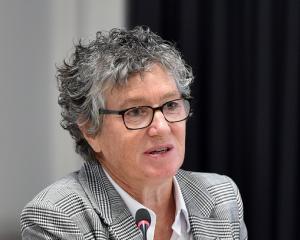The Ministry of Business, Innovation, and Employment's latest funding round allocation was announced yesterday. Associate Prof George Dias, of the anatomy department, in Dunedin, will receive $999,796 over two years for his wool protein research.
Sheep wool is 95% protein, with no fat or carbohydrates. Prof Dias, who is overseas this week, recently developed a method to extract food-safe digestible protein from wool.
''New Zealand's food processing and nutritional ingredient companies will have ready access to this new, premium protein to develop innovative, high-value exports,'' a research summary said.
It could be produced for $10 a kg, compared with $25 a kg for whey protein isolate. The funding would be used to further test the wool-derived protein concept. Preliminary studies showed it was rich in amino acid cysteine and had high levels of selenium.
Contacted in Oregon, United States, Prof Dias said the extraction process used no chemicals. The product would be a ''brand new protein'' not eaten by people or animals before and was an exciting development.
The protein appeared to have positive effects on blood sugar and cholesterol. In other projects, Dr Mikkel Andersen, physics department, Dunedin, received $989,388 over two years to develop highly accurate portable gravity-measuring devices; Prof Tony Blakely, public health, Wellington, $2.948 million over six years to develop a mathematical model to assess benefits of health interventions; Dr Tim Woodfield, orthopaedic surgery and musculoskeletal medicine, Christchurch, $3.2 million over four years, to design improved titanium implants; Associate Prof John Reynolds, anatomy, $998,026 over two years for medical technology that allows neurochemicals to be non-invasively delivered to the brain to treat diseases such as Parkinson's; Prof Gerald Tannock, microbiology and immunology, $1 million over two years to develop compounds for infant formula that stimulate growth of healthy bowel bacteria.
Deputy vice-chancellor (research and enterprise) Prof Richard Blaikie was delighted by the researchers' success in securing a total of $10.15 million.
''These programmes have the potential to reap important benefits for New Zealanders' health and wellbeing while boosting the country's economic fortunes.''
In all, 48 programmes run by 13 research organisations given a total of $139 million.
Advertisement













